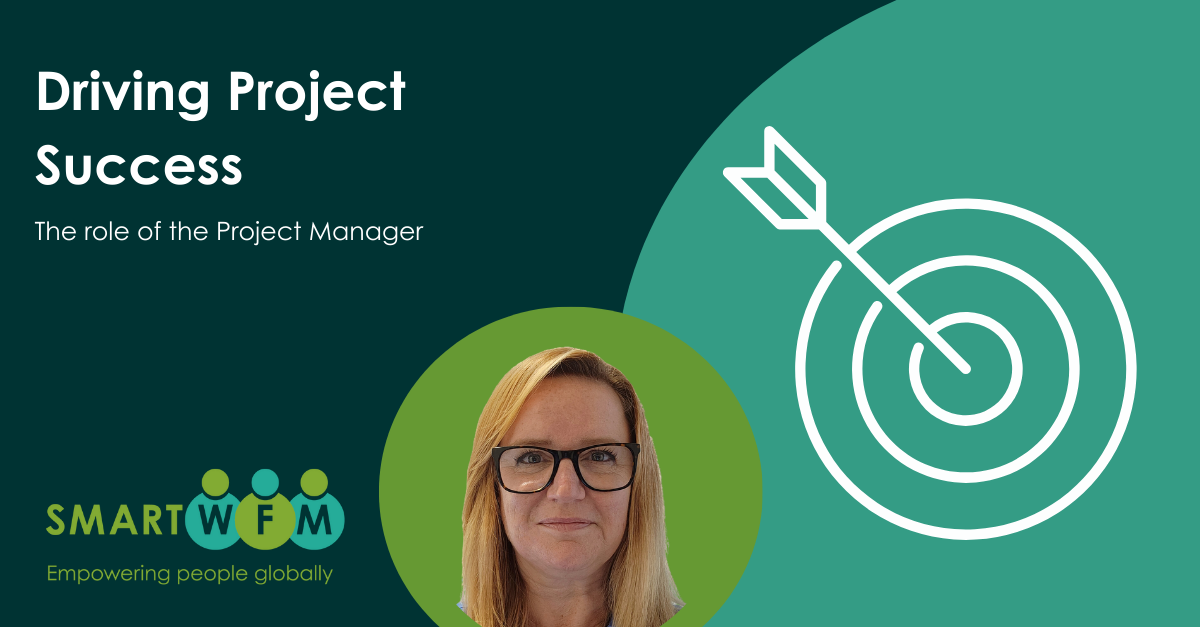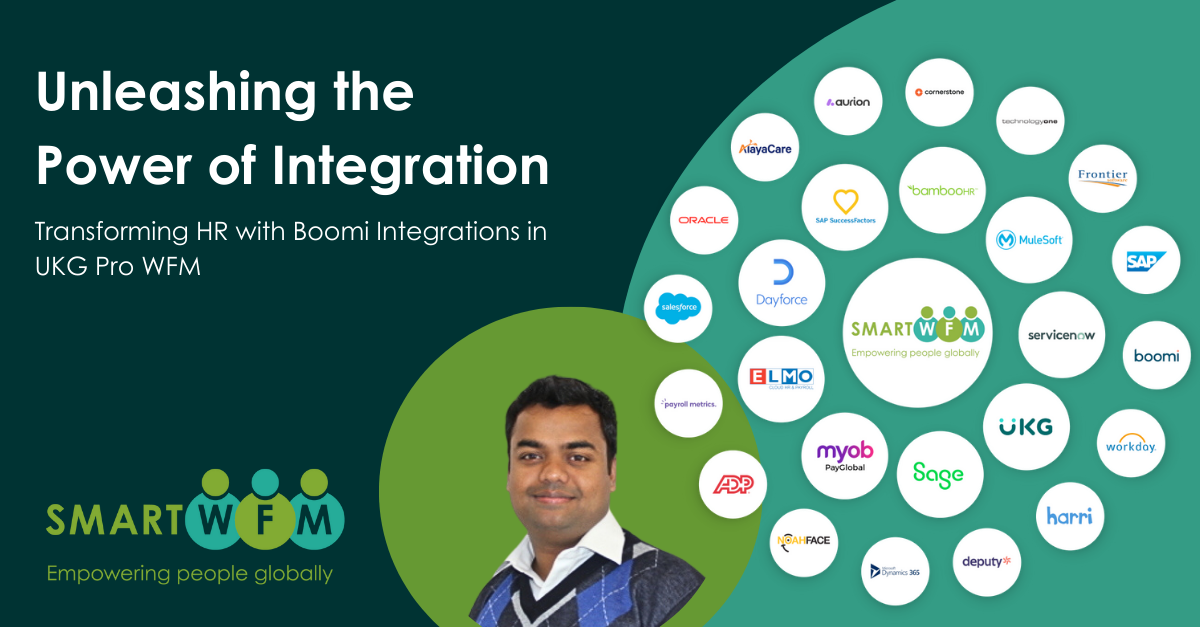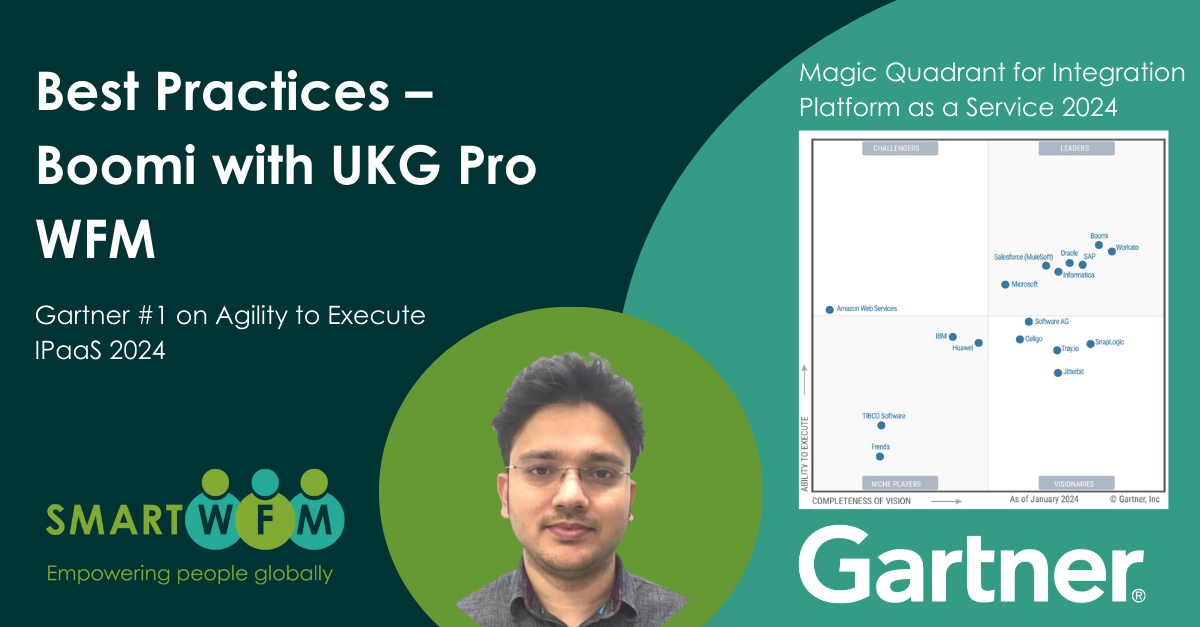Transforming HR and WFM with Boomi Integration in UKG Pro WFM
In today's fast-paced business environment, organisations are constantly seeking ways to streamline operations and maximise efficiency. Nowhere is...

Project managers play a powerful role in the implementation and governance of workforce management initiatives, ensuring that projects are delivered on time, within budget, and within expected outcomes. In this blog, we will explore the role that project managers play in driving successful workforce management projects, and how their expertise can lead to improved project delivery.
A project manager’s experience enables them to effectively plan, organise, and execute projects, ensuring successful outcomes. A key responsibility of a project manager is to support the identification of the right resources to the project. Project managers are also skilled in managing stakeholders and communication. They act as a bridge between the project team and the rest of the organisation, ensuring clear and effective communication throughout the project lifecycle. As a project manager, I often see a project team that consists only of executives or corporate staff. Whilst the executive team are vitally important to a project, the team in the coalface understand how the organisation operates day to day, what the challenges are and what manual interventions are taking place to get the job done. It’s important to include key operational team members who can help the executive team get the best outcome for a project. Not only will the executive team get visibility over the way the business is currently working but it will bring the operational team on the journey to support the end goal. It will also help identify champions that can be leveraged throughout the rollout phase.
Setting clear goals and objectives is essential for successful project management in any workforce management project. A project manager will work closely with all stakeholders to define and establish these goals. By understanding the needs and expectations of an organisation, they can create realistic and measurable objectives that align with the overall project vision.
Once the goals and objectives are defined, the project manager should develop a comprehensive project plan that outlines the steps, resources, and timelines required to achieve these goals. They will keep track of all project components, including tasks, deadlines, budgets, and resources. They will prioritise effectively to support the project staying within budget and on schedule.
Project managers anticipate potential risks and develop contingency plans to mitigate their impact. This involves identifying obstacles and finding solutions, which minimises disruptions and keeps the project moving forward. Common risks I see as a project manager are:
By effectively planning and organising all project aspects, the project manager sets the stage for a streamlined and efficient project execution. This not only ensures successful project delivery but also maximises resource utilisation and minimises delays or costly errors.
Effective communication and collaboration are critical components in driving successful workforce management projects. A project manager should possess strong communication skills to effectively convey project goals, expectations, and updates to all team members and stakeholders.
Clear communication ensures that everyone involved understands their roles and responsibilities, as well as the project's overall objectives. This helps to avoid misunderstandings or misinterpretations that can lead to delays or mistakes.
Collaboration plays a powerful role in project success. A project manager should foster a collaborative environment where team members can freely share ideas, provide feedback, and work together towards a common goal. By encouraging open communication and collaboration, a project manager can leverage the diverse skills and expertise of the team, resulting in innovative solutions and improved project outcomes.
Workforce Management projects involve many teams from HR, Payroll, Finance, IT to Rostering Managers and the list goes on. As I touched on above including all levels within an organisation in workforce management will allow for greater collaboration and ultimately the best outcome when solutions are rolled out.
Project managers also play a significant role in recognising success and learning from failures throughout the project.
When a project reaches a milestone or achieves its objectives, it is important for the project manager to recognise these accomplishments. This not only boosts morale but also fosters a sense of achievement and motivation within the team.
On the other hand, setbacks are inevitable in any project. A skilled project manager knows that setbacks can also serve as valuable learning opportunities. They encourage a blame-free culture where team members can openly discuss what went wrong, analyse the reasons behind the set back, and find ways to prevent similar issues in the future. A project manager will maintain a risk register that is prioritised and kept updated throughout the project. Some risks need to be resolved whilst others may be a known risk that is monitored or managed by process rather than technology.
Project Managers are responsible for efficiently planning, coordinating, and executing all aspects of the project, ensuring it’s delivered on time, within budget and meets the desired objectives. They play a key role in facilitating effective communication between stakeholders, ensuring all parties are aligned and involved throughout the process. Their problem-solving skills, attention to detail, and ability to adapt to changing circumstances are important in overcoming project challenges and keeping the project on track.
Blog written by Sara Golding: Project Manager

In today's fast-paced business environment, organisations are constantly seeking ways to streamline operations and maximise efficiency. Nowhere is...

Boomi is an extremely powerful iPaas (Integration platform as a service) solution which enables to integrate any of your applications to another and...